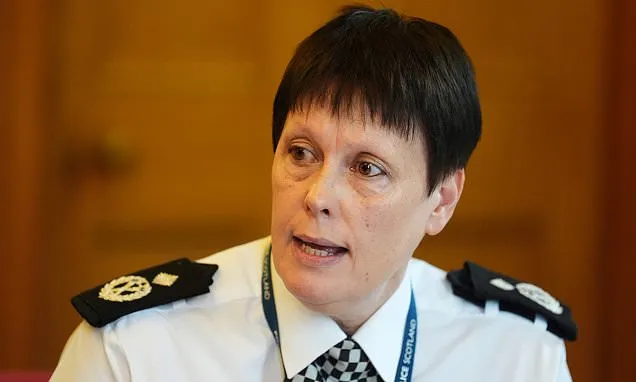A senior police officer has denied "stonewalling" as she was pressed over why Palestine Action has been proscribed by the UK Government.
Scottish Police Authority board member Paul Edie challenged Deputy Chief Constable Jane Connors on the matter at the organisation's meeting on Thursday.
Mr Edie, a former Liberal Democrat councillor said he was seeking "an assurance the proscription is proportionate".
He raised the matter with the Deputy Chief Constable because he said "an important component of policing by consent is the public understands why a law is in place".
However, Ms Connors made clear that: "Proscription of an organisation rests with the Government, the UK Government.
"It is their decision, I don't feel there is anything that I can comment on and it would be inappropriate for me to do so."
We are an oversight body, I am trying to provide some oversight on behalf of the general public and I'm getting stonewalled here Paul Edie, board member, Scottish Police Authority
Mr Edie, however, said he was "disappointed" with her answers, telling Ms Connors: "You can't explain why people in Scotland are being arrested.
"There must be some justification from the proscription and that must have been communicated to you."
He added: "You are implementing the law, I am just looking for a further explanation of why this organisation is being proscribed.
"I have to say I am not satisfied with the answers. We are an oversight body, I am trying to provide some oversight on behalf of the general public and I'm getting stonewalled here; I don't think that is acceptable."
The Deputy Chief Constable insisted: "I don't feel that I am stonewalling."
She stressed that the police "act in accordance with the law", adding that "the proscription came from the UK Government".
The designation as a terror group means that membership of, or support for, Palestine Action is a criminal offence punishable by up to 14 years in prison.
Hundreds of people have been arrested across the UK since the group was banned on July 5 - a move which was announced after about £7 million of damage was caused to two aircraft at RAF Brize Norton in Oxfordshire on June 20.
Days after that Home Secretary Yvette Cooper announced plans to proscribe Palestine Action, stating that the vandalism of the two planes was "disgraceful" and that the group had a "long history of unacceptable criminal damage".
Ms Connors said: "The proscription of Palestine Action came into force on July 5 and there is a range of criminal offences that relate to the membership and support of a proscribed organisation under the Terrorism Act.
"That can include things like wearing clothing, carrying or displaying articles in public in circumstances that would arouse reasonable suspicion that an individual is a member or supporter of a proscribed organisation."
All officers in Police Scotland were issued with guidance relating to the proscription of Palestine Action, she said.
The Deputy Chief Constable also stressed to the SPA board that Police Scotland recognises the "democratic right to peaceful protest".
She stated: "The guidance outlines the criminal offences in relation to membership and support of a proscribed organisation under the Terrorism Act.
"But it also makes it clear it remains lawful to express support for Palestine, the Palestinian cause, or to display the Palestinian flag."
